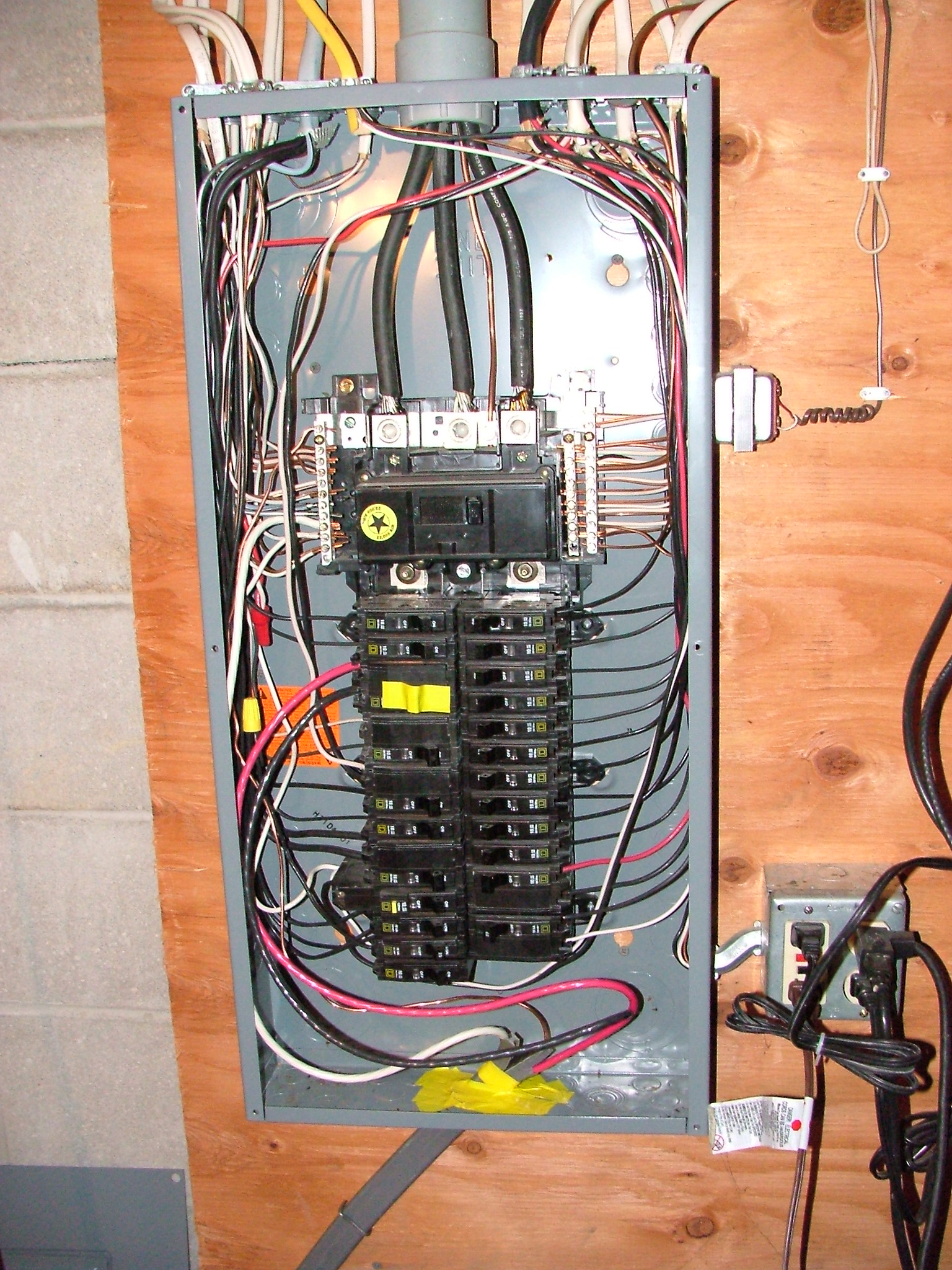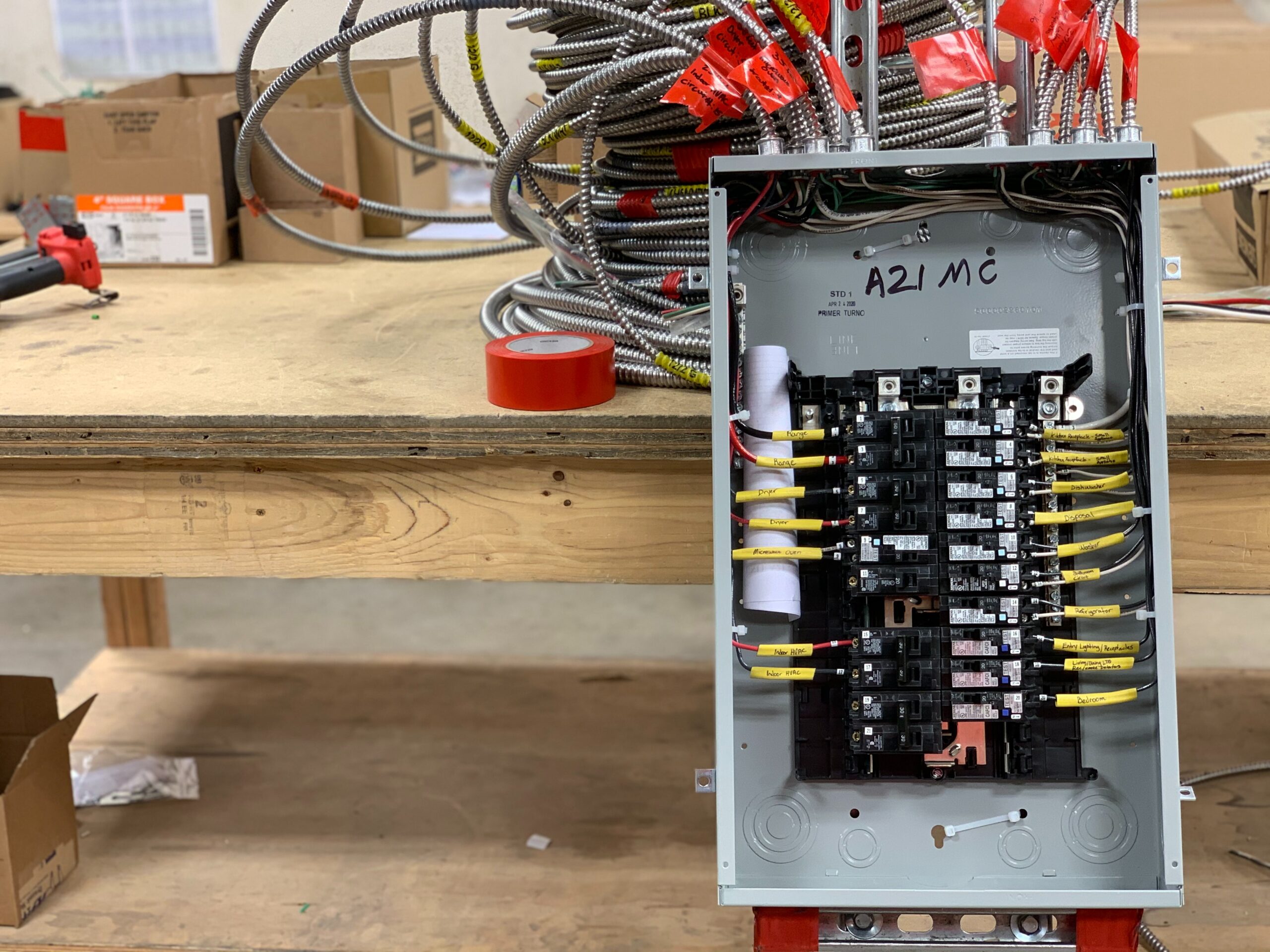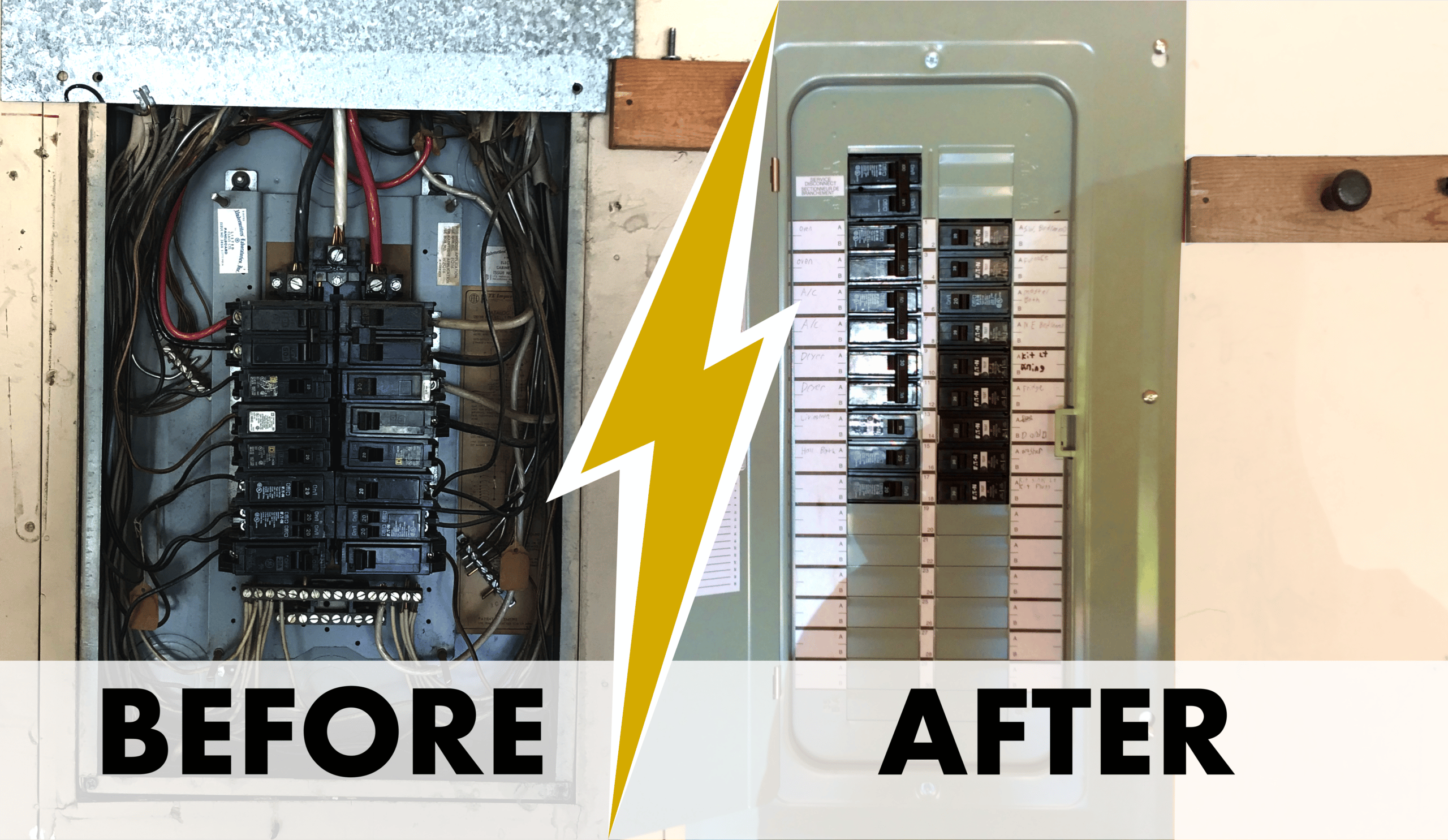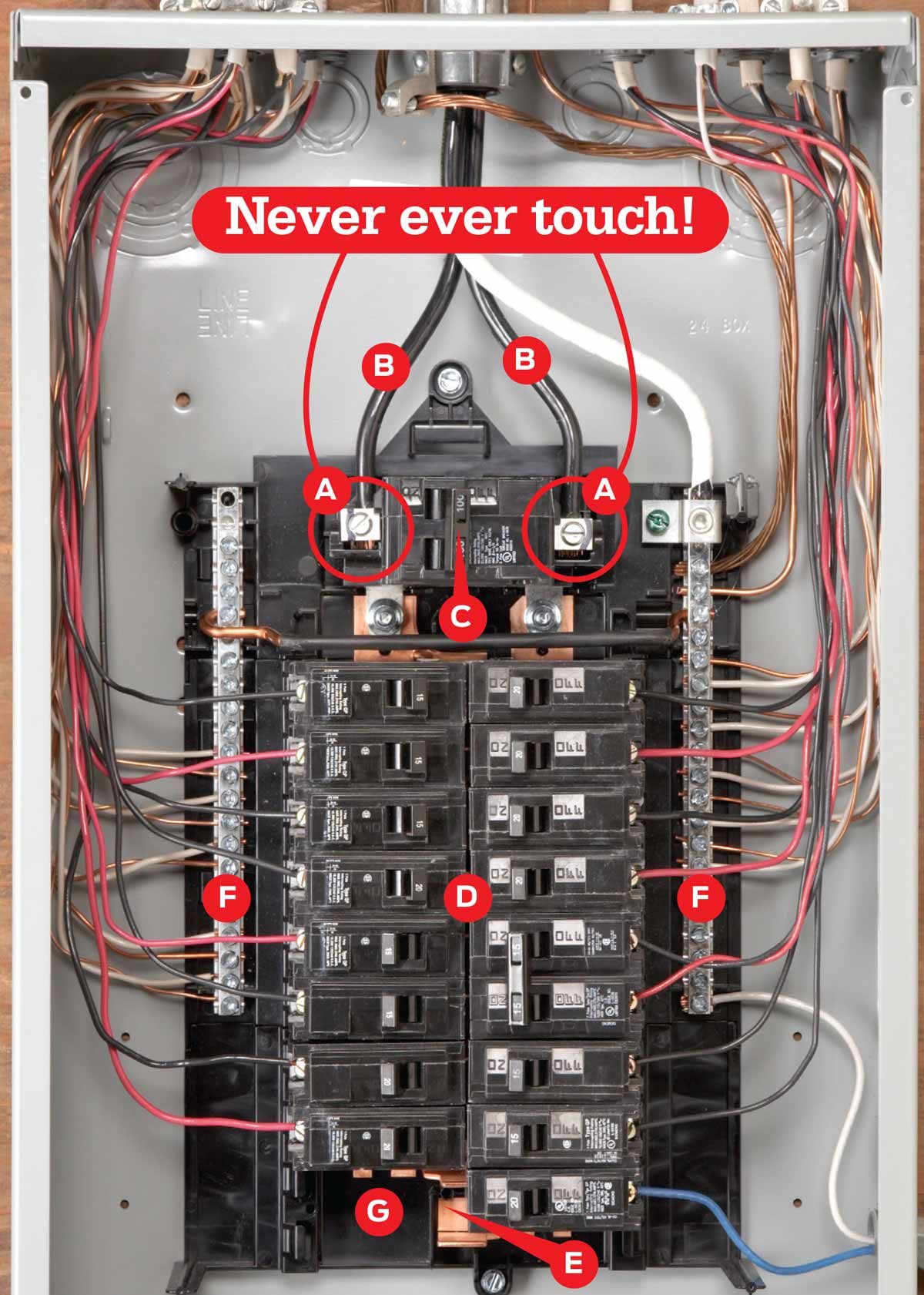Looking Good Info About Is It Breaker Box Or Panel

Breaker Box or Breaker Panel
1. Understanding the Basics
Okay, let's talk about that gray metal thing in your basement or garage — you know, the one with all the switches? Is it a "breaker box" or a "breaker panel"? Honestly, you'll hear both terms used interchangeably, and for the most part, people will know exactly what you're talking about either way. It's kind of like calling a soda a "pop" or a "coke" depending on where you live. Functionally, they're the same thing, designed to protect your home's electrical system from overloads and short circuits.
Think of it this way: it's the central command center for your home's electricity. Each switch, or circuit breaker, controls a specific circuit in your house — lights in the living room, outlets in the kitchen, etc. When a circuit gets overloaded (too much power being drawn at once), the breaker trips, cutting off the electricity to that circuit and preventing a potential fire hazard. It's a safety mechanism, pure and simple, designed to keep you and your family safe.
So, if someone asks you if you know where the "breaker box" is, don't start searching for a cardboard box filled with broken things. They're referring to that electrical panel. And if someone mentions the "breaker panel," you don't need to correct them and say, "Actually, it's a breaker box!" Just nod knowingly and proceed with the conversation. Clear?
The main thing is to understand its function. This panel, regardless of what you call it, is critical to your home's safety. Know where it is, how to safely operate the breakers, and when to call a professional electrician. That's much more important than the specific name you use.

Is There a "Correct" Term?
2. Delving into Technicalities
While both terms are widely accepted, some electricians might argue that "breaker panel" is slightly more technically accurate. "Panel" refers to the entire assembly, including the enclosure, the busbars (the metal strips that distribute electricity), and the circuit breakers themselves. "Box" might imply just the metal enclosure. But honestly? In everyday conversation, that distinction is rarely important. You're more likely to hear an electrician using the term "electrical panel" in more formal settings.
Consider this scenario: you're calling an electrician because you keep tripping a breaker. Are they going to quiz you on your electrical terminology? Absolutely not. They're going to ask about the problem, the location of the panel (or box), and any symptoms you've noticed. They're more interested in solving the problem than giving you a vocabulary lesson.
Think of it like referring to your car. You might call it a "car," a "vehicle," or even a "ride." Technically, "vehicle" is the most encompassing term, but nobody's going to be confused if you say, "I'm taking the car to the store." The same logic applies here. Both terms communicate the same meaning effectively.
At the end of the day, the best term is the one that's most easily understood by everyone involved. If you're talking to a professional, "breaker panel" might be slightly preferred. But for casual conversation with neighbors or family members, "breaker box" works just fine. Don't sweat the small stuff!

Types Of Circuit Breakers
Why Knowing Matters (Beyond the Name)
3. Safety First!
Okay, so maybe the name isn't crucial, but understanding what this thing does is absolutely vital. Knowing where your breaker box/panel is located is important in case of emergencies, such as a power outage or an electrical fire. You need to be able to quickly shut off the power to your home if necessary.
Also, familiarizing yourself with the labels on each breaker can save you a lot of time and frustration. Instead of blindly flipping switches, you'll know exactly which breaker controls which circuits. This is especially helpful when you're doing electrical work or troubleshooting problems. Imagine trying to fix a light fixture without knowing which breaker to turn off! That's a recipe for a shock (literally and figuratively).
Never attempt electrical repairs or modifications unless you're absolutely confident in your abilities and knowledge. Electricity is dangerous, and even a seemingly minor mistake can have serious consequences. When in doubt, always call a qualified electrician. Your safety and the safety of your home are worth more than saving a few bucks.
Consider investing in a circuit breaker finder. These handy devices help you quickly identify which breaker controls a specific outlet or light fixture. They're relatively inexpensive and can save you a lot of time and hassle, especially if your breaker box labels are outdated or confusing.

Troubleshooting
4. Knowing Your Limits
While you might be able to handle simple tasks like resetting a tripped breaker, there are certain situations that require the expertise of a licensed electrician. For example, if a breaker trips frequently, there's likely an underlying problem that needs to be addressed. It could be an overloaded circuit, a faulty appliance, or a wiring issue.
Also, any signs of damage or deterioration in the breaker box itself should be inspected by a professional. This includes things like rust, corrosion, burnt wires, or a loose breaker. These are all potential hazards that could lead to a fire or electrical shock.
Upgrading your breaker box is another job best left to the pros. This is a complex and potentially dangerous task that requires specialized knowledge and equipment. Incorrect installation can have serious consequences, including fires, explosions, and electrocution. Don't take the risk!
Remember, your breaker box/panel is the heart of your home's electrical system. It's not something to be taken lightly. By understanding its function and knowing when to call a professional, you can keep your home safe and avoid potentially costly repairs.

Beyond the Basics
5. Technology Marches On
The world of electrical panels is even evolving. Now, you can get "smart" breakers that connect to your home's Wi-Fi network. These breakers allow you to monitor your energy usage in real time, remotely control circuits, and receive alerts when a breaker trips. Pretty cool, right?
Smart breakers can help you identify energy-hogging appliances, reduce your electricity bill, and even prevent electrical fires. They're a relatively new technology, but they're quickly gaining popularity as homeowners look for ways to make their homes more efficient and safer.
Even if you're not ready to invest in smart breakers, it's worth staying informed about the latest advancements in electrical safety. Technology is constantly changing, and there are always new ways to improve the safety and efficiency of your home's electrical system.
Whether you stick with the classic breaker box or embrace the future with smart breakers, the key is to understand your home's electrical system and take steps to ensure its safety. Knowledge is power, especially when it comes to electricity!

Ac Breaker Box Wiring
FAQ
6. Your Burning Questions Answered
Q: What should I do if a breaker keeps tripping?
A: First, try unplugging any appliances or devices that are connected to that circuit. Then, reset the breaker. If it trips again immediately, there's likely a problem with the circuit or an appliance. Call an electrician!
Q: Can I replace a breaker myself?
A: If you're comfortable working with electricity and understand the safety precautions, you can replace a breaker yourself. However, it's always best to err on the side of caution and call a qualified electrician, especially if you're not sure what you're doing. Incorrect installation can be dangerous.
Q: How often should I have my breaker box inspected?
A: It's generally recommended to have your breaker box inspected by a qualified electrician every few years, or more frequently if you notice any problems. A professional inspection can identify potential hazards and ensure that your electrical system is functioning safely.
Q: What do I do if my breaker box is humming or buzzing?
A: A humming or buzzing sound coming from your breaker box can indicate a loose connection or other electrical issue. This is a potentially dangerous situation, and you should call an electrician immediately. Do not attempt to investigate or repair the problem yourself.